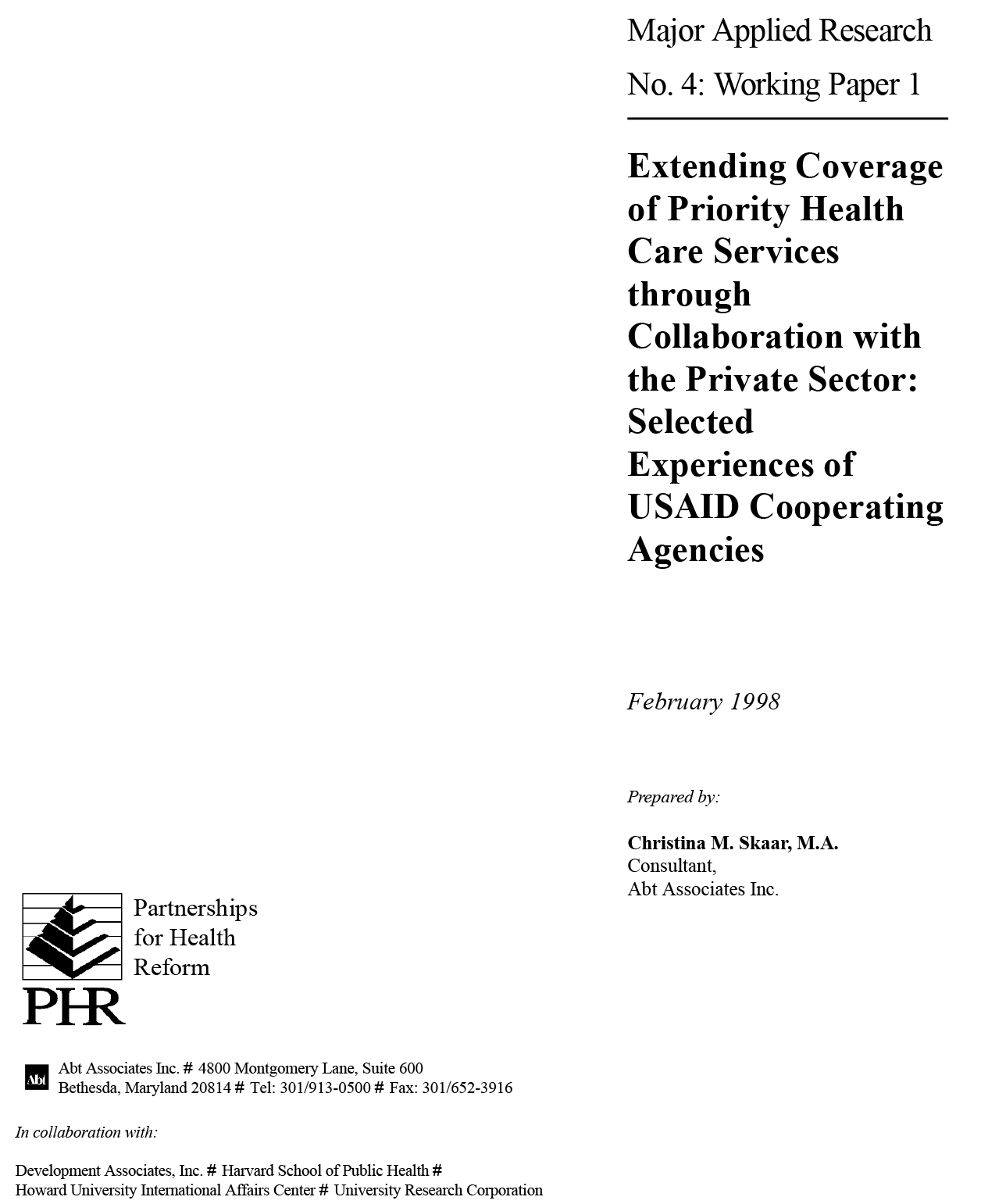
Resource Library
Extending Coverage of Priority Health Care Services through Collaboration with the Private Sector: Selected Experiences of USAID Cooperating Agencies
As it has become apparent in most regions that developing countries' public sectors lack the resources to meet the health care needs of their populations, the United States Agency for International Development (USAID) has sought increased collaboration with the private sector in the last decade. This paper presents an overview of the variety of activities cooperating agencies (CA) have undertaken in collaboration with the private sector to extend coverage of priority health services. USAID has defined priority health care services to include maternal and child health, reproductive health, family planning, and sexually transmitted diseases/acquired immunodeficiency syndrome services. The general methods of collaboration employed, types of private providers and services involved, and geographic regions and populations covered are described. An assessment of the collaboration is also included, incorporating an analysis of how the different aspects of these projects are combined. Information was gathered largely through CA annual reports, outside evaluations, discussions with project staff, and other materials produced and disseminated by the CAs. The review was constrained by time and availability of documents and is not an exhaustive survey. It presents the most up-to-date portrayal of ongoing public-private partnerships.
Resource Type : Other
Country :
Year : 1998-02-24T11:15:00
Language : French
Project : SHOPS


